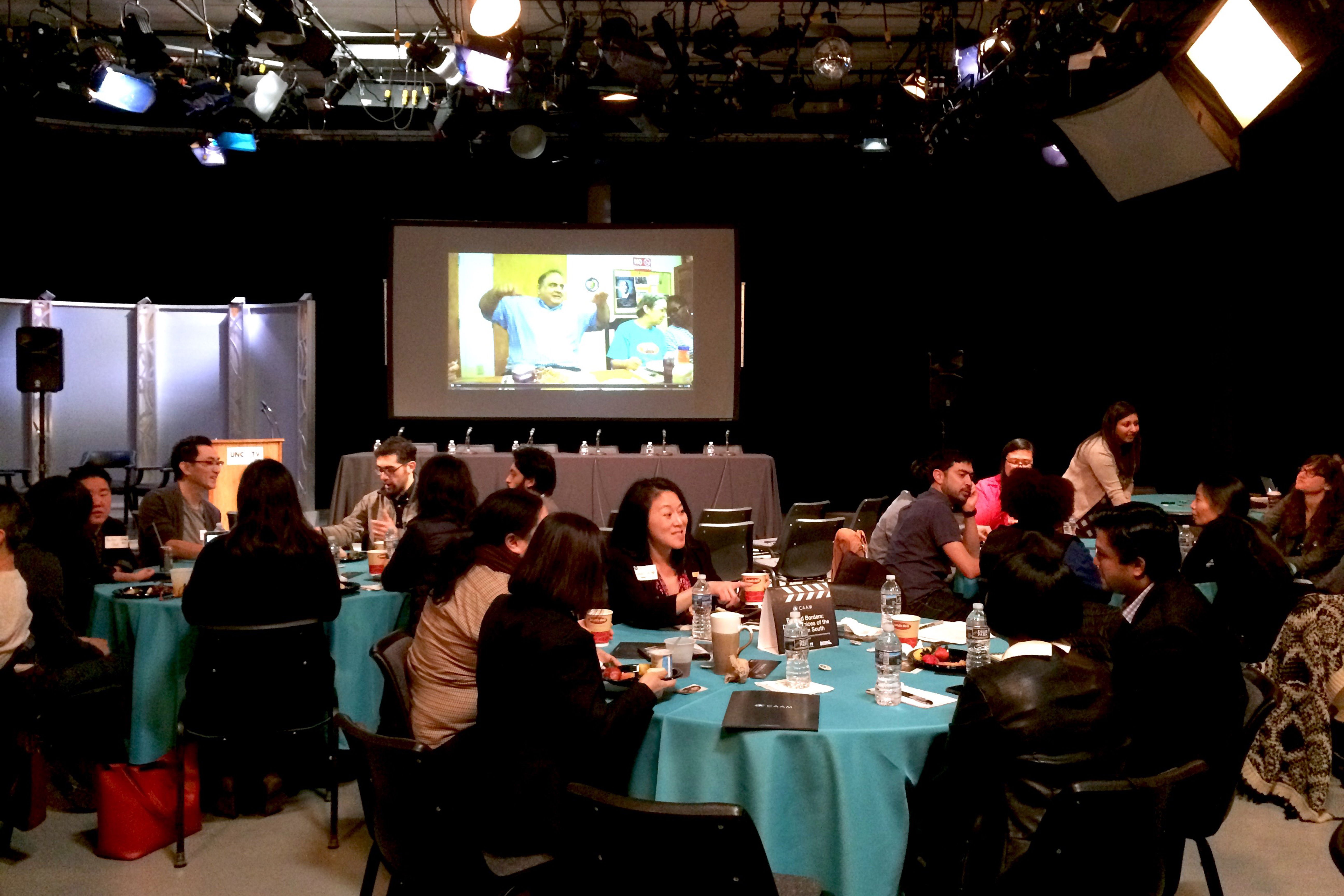 “The Family Pictures kickoff activity was a fab ice breaker and I saw my fellow table mates and the people in the room with compassion, love, and humanity that we are all in this together.” – Anonymous participant
“The Family Pictures kickoff activity was a fab ice breaker and I saw my fellow table mates and the people in the room with compassion, love, and humanity that we are all in this together.” – Anonymous participant
In February, I was invited by longtime Family Pictures USA supporter Center for Asian American Media (CAAM) to host a workshop at “Beyond Borders: Diverse Voices of the American South”: a gathering of Asian American filmmakers, community organizations, and media arts organizations for a conference that was the first of its kind.

CAAM organized “Beyond Borders” to surface Asian American narratives in the South. These narratives may not be the first ones that come up in conversations about the South or about Asian American experience. However, like so many other voices that call for a wider understanding of our lived bodies – migrating, aging, facing various perceptions – and their possibilities, they are the critical ones in understanding how we can better support each other as individuals, organizations, and communities. As the first presenter whose goal was to set the tone for the rest of the conference, my idea was to use the model I’ve honed with DDFR, which began in the South, to open the participants up to each other in conversations about family.
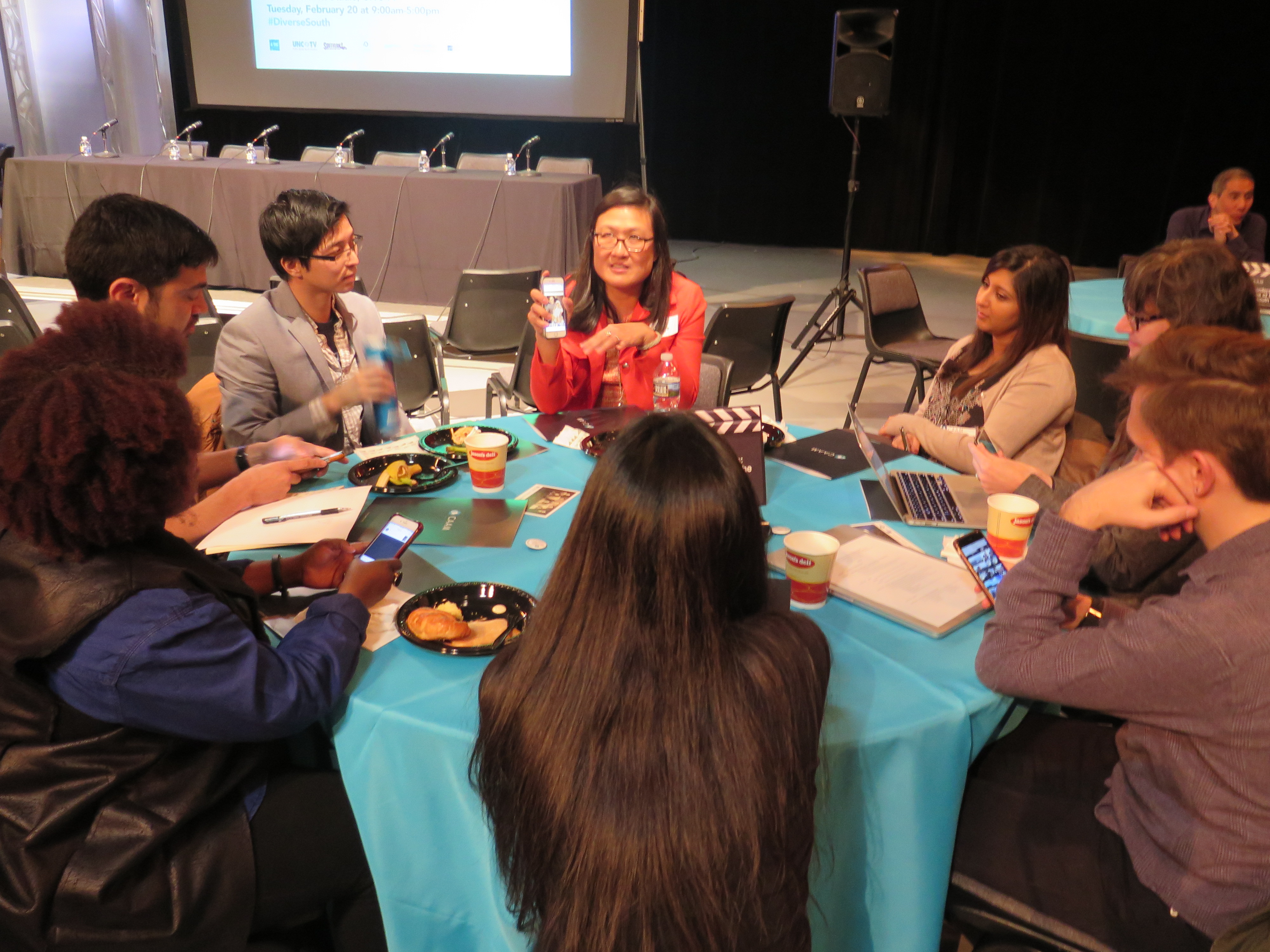 Participants sat at round tables in one of UNC-TV’s studios in Durham, North Carolina. I asked participants to share one of their family photos, whether printed or on their phones, with their table mates. After everyone was able to tell their family story in a more intimate setting, the group then shared some of their reflections with the room. I was moved by the level of vulnerability and enthusiasm with which participants exchanged stories; stories about mental health, specificity of place, and the search for belonging. By the end, I felt pride and clarity knowing the emerging leaders in US media arts are queer, they’re POC, and they’re uplifting diverse voices of the American South.
Participants sat at round tables in one of UNC-TV’s studios in Durham, North Carolina. I asked participants to share one of their family photos, whether printed or on their phones, with their table mates. After everyone was able to tell their family story in a more intimate setting, the group then shared some of their reflections with the room. I was moved by the level of vulnerability and enthusiasm with which participants exchanged stories; stories about mental health, specificity of place, and the search for belonging. By the end, I felt pride and clarity knowing the emerging leaders in US media arts are queer, they’re POC, and they’re uplifting diverse voices of the American South.
New Queer Christian Families
SueAnne Shiah, based in Nashville, Tennessee, shared a picture of her queer Asian Christian girl squad at the queer Christian fellowship conference in Denver, CO. She said, “For us, what it means to be family is deeply tied to our queerness and to our Christian faith – like we’re all going to start a queer Asian commune someday and live together and raise each other’s babies. To me, that’s the family I’m part of building, not just born in.”
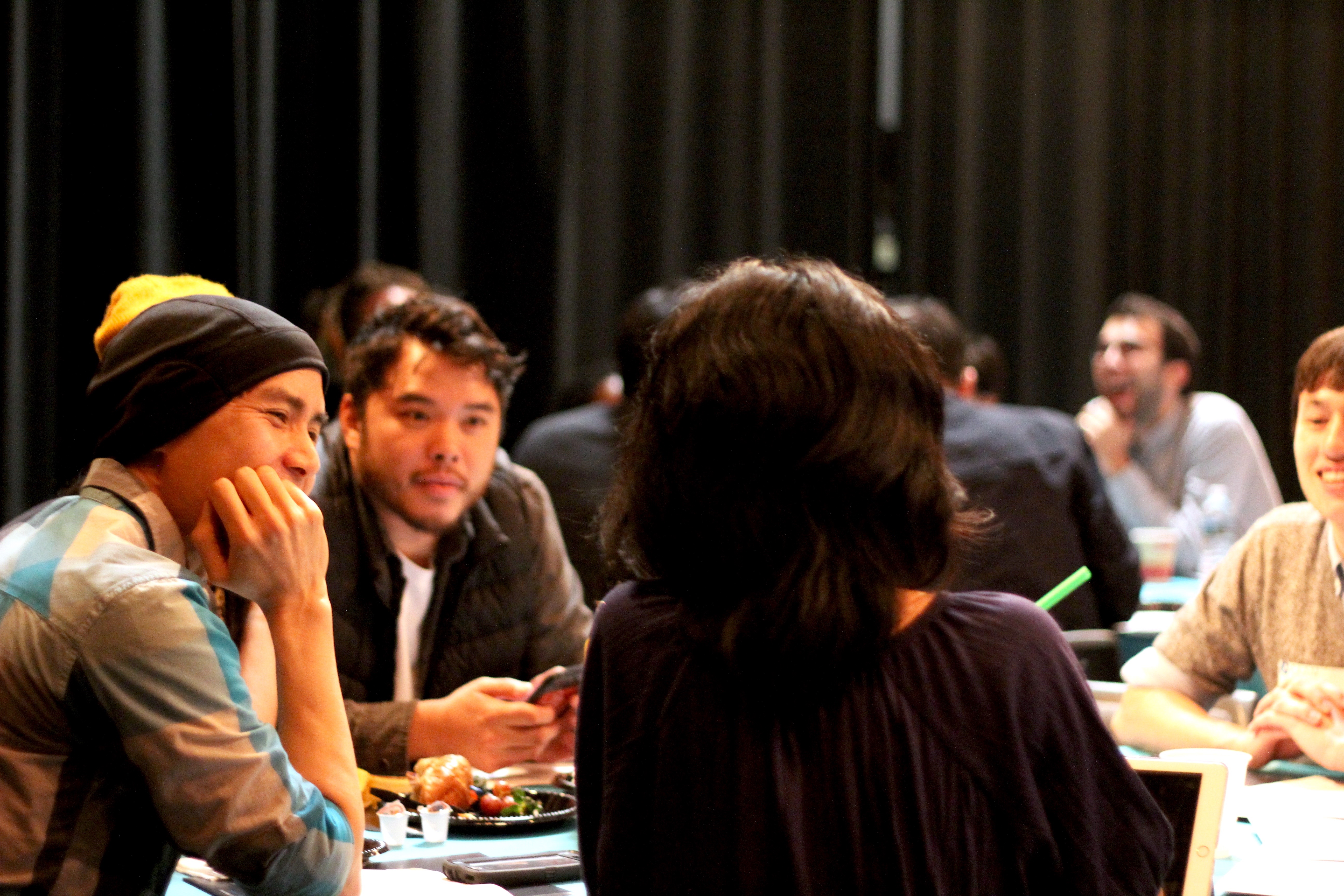
Children of Immigrants
Chris Kim from Austin, Texas spoke on some personal revelations that arose from table-sharing: “We have a lot of immigrants at our table actually, so a lot of pictures were from back home, from youth. I’m a child of immigrants, so my picture’s of my grandparents in which my grandma is laughing—I’ve never seen her laugh in my life, either in person or in a picture, and I’ve only met her a handful of times. So talking about that sort of distance and disconnect between the homeland and where we are now, and just the general—for me anyway—the longing of feeling like you don’t belong there, you don’t belong here… There’s a bit of a gap.”
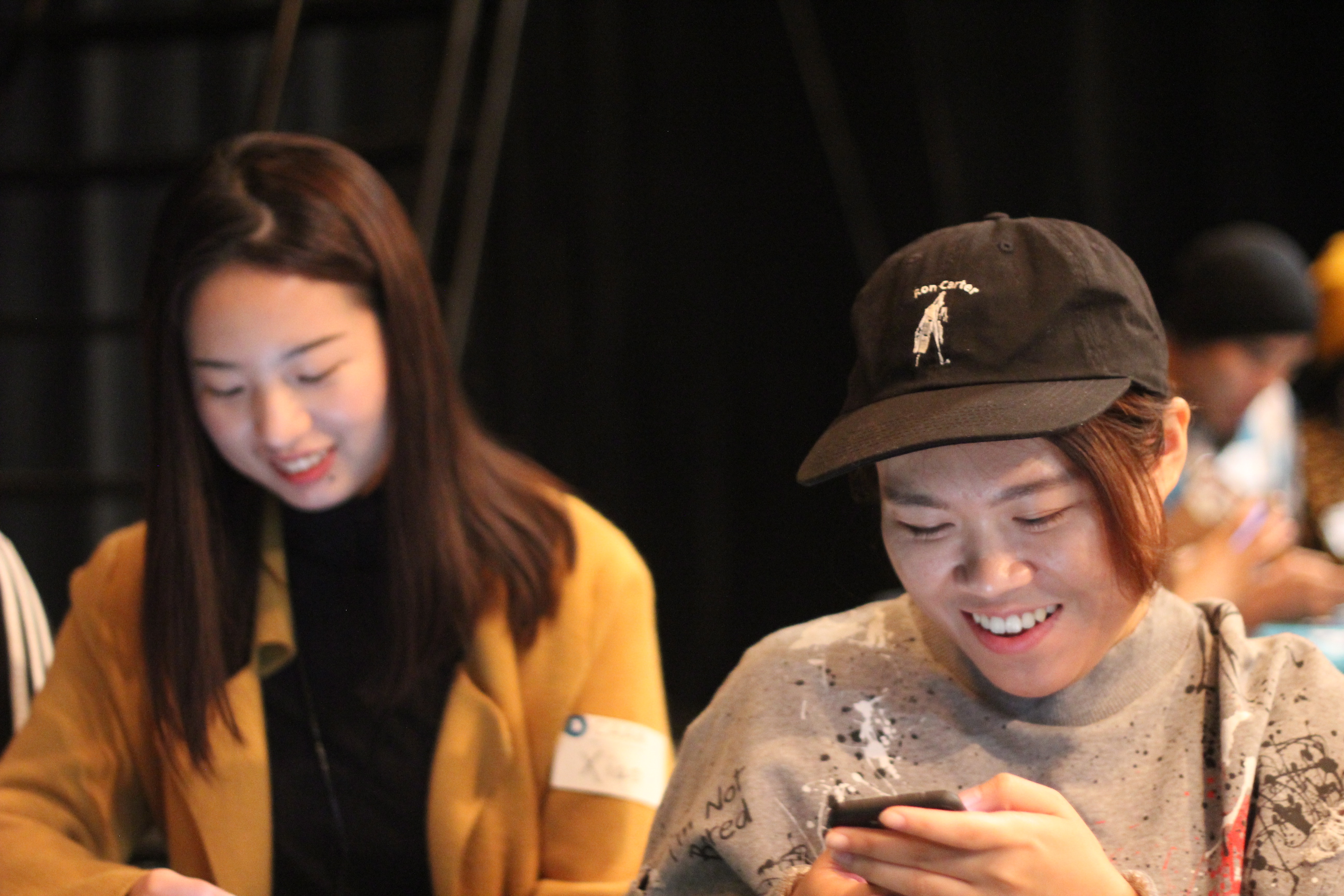
The experiences of these photo-sharing workshops are as diverse as the audiences who participate in them, as they have to be. Every time, I feel blessed to witness the change in myself and in these groups of friends and colleagues, knowing we will walk away with resources we could not have anticipated.
Sam Parker of Durham, North Carolina shared: “I was struck by how ‘otherness’ came up. That was explicitly discussed in the way that plays out in both chosen family and unchosen family, the ways in which migration plays into that, the ways in which we move through communities and into communities, and both coping mechanisms for that and kind of liberation that can come from finding communities where you’re not the other.”
After our Family Pictures USA pilot is complete, our next two cities are going to be in the South, and UNC-TV will be one of our major partners in this next step in the series. I’m looking forward to continuing those threads we picked up in UNC-TV’s studio; threads that show what the diverse voices of the American South have been saying all along.
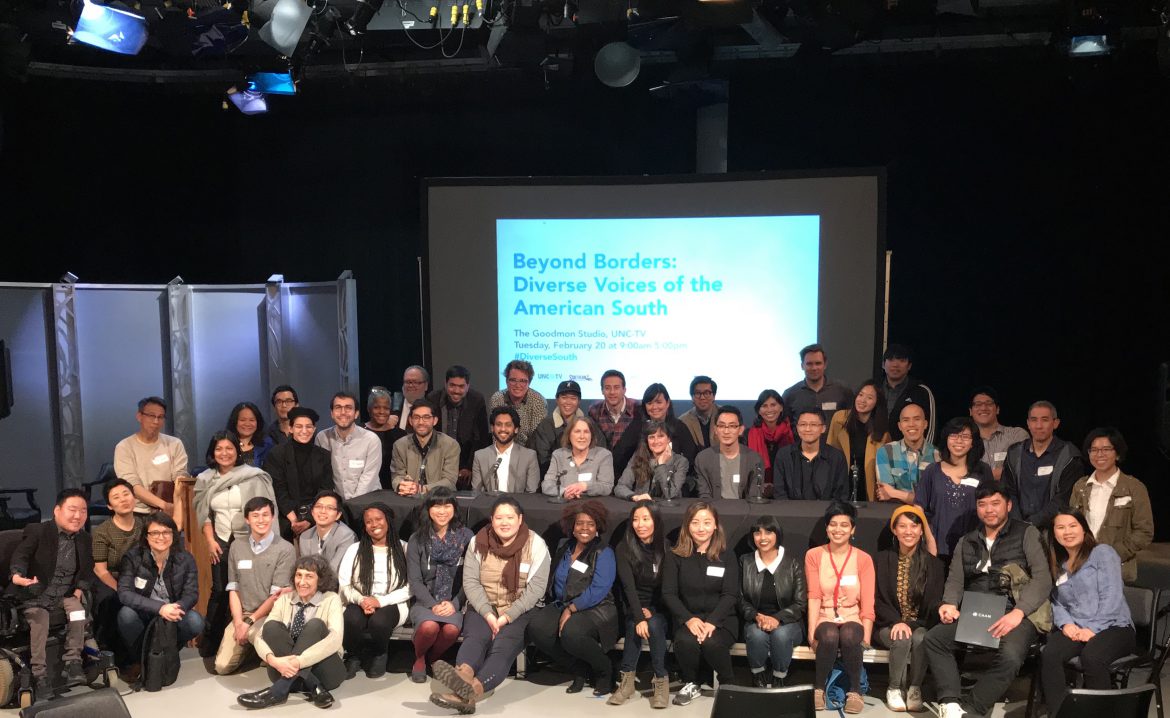
No comments yet.